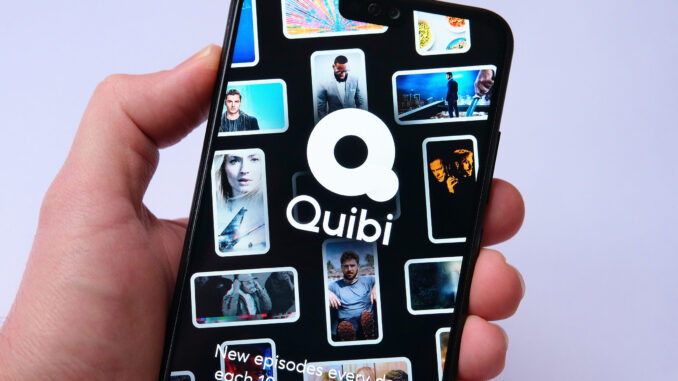
Griffin Sendek
Multimedia Editor
10/29/20
It feels as though Quibi’s $1.75 billion attempt to revolutionize the way we watch TV has come, and its eventual bankruptcy all happened in well, a Quibi.
If you happened to be a member of the massive majority of the world’s population, the word Quibi likely means absolutely nothing to you.
Quibi is, or soon to be was, a brand new streaming platform launched on April 6, 2020 that featured solely original TV content. The standout feature setting it apart from the rest was that each episode was 10 minutes or less, not a second longer.
In a massive advertising campaign near the launch of the service, there was an attempt to make “Quibi” a new addition to the lexicon, a definition synonymous with a 10-minute or less period of time. This series of advertisements served more to push the use of this new word, as opposed to actually informing consumers what the new platform really was, and why they should pay for it.
The word quibi, and the service itself, failed to catch on.
On Oct. 22, Quibi co-CEO Jeffery Katzenberg and Meg Whitman posted an open letter informing investors and consumers that the company would be shutting down and is in the process of selling off its content.
“Quibi was a big idea and there was no one who wanted to make a success of it more than we did. Our failure was not for lack of trying; we’ve considered and exhausted every option available to us” Katzenberg and Whitman said in the statement.
Multiple factors were likely the culprit for the platforms’ demise.
“And yet Quibi is not succeeding. Likely for one of two reasons: because the idea itself wasn’t strong enough to justify a standalone streaming service or because of our timing.” Katzenburg and Whitmen said.
A release sandwiched between an explosion of new streaming services and a global pandemic were not amble conditions for success. A service consisting of bite-sized episodes designed for an on-the-go, commuter market was the last thing people were clamouring for while stuck in the height of stay-at-home orders.
Seeking to kill as much time as possible during quarantine, when the decision was between paying for yet another streaming subscription to watch a handful of average quality shows no one had ever heard of, sliced into 10-minute chunks that is only viewable on a phone, or watching Netflix’s “Tiger King,” “Tiger King” won out.
The fact is, streaming services live and die by quality of content, not the method of delivery. The shows Quibi had to offer never managed to capture the public interest. Out of dozens of shows on the platform ranging from dramas, comedies, reality TV and documentaries, none garnered a must-see status. One smash hit during users in and proving Quibi as a viable platform might have been all that was needed to keep the service afloat.
The majority of the shows on Quibi were of a very average quality that couldn’t hope to compete with the originals produced by Netflix, Amazon, Hulu, HBO and Disney+. Big budget productions, A-list actors and the return of beloved long canceled shows barely made an impact when it came to general interest and subscriber numbers.
At launch, the offer of a generous 90-day free trial garnered an initial spike in subscriber amount, however as the three month trial period came to a close, Quibi struggled to convert the free trial users into paying subscribers.
The pandemic, in no way, helped Quibi’s business, but the idea may have been doomed from the very beginning. Quibi was seemingly formed out of the assumption that “kids-these-days have-zero-attention-spans” and chasing the popularity of the short form content of Vine, TikTok and Youtube. The key difference Quibi failed to consider is that these social media platforms are popular not for its runtime, but because the content is all available for free.




